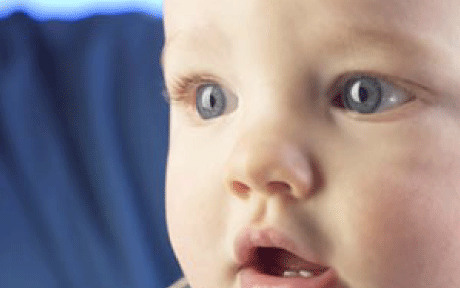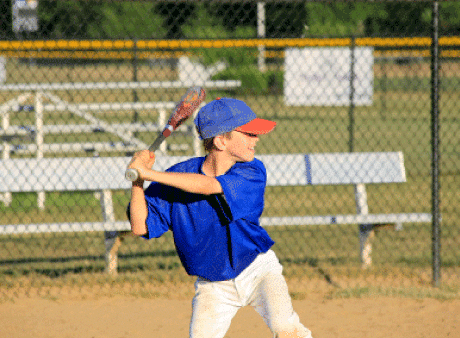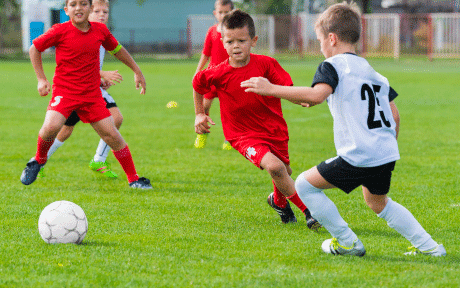Pediatric Vision Care
Dr. Mintchell completed a post doctoral Pediatric and Binocular Vision Residency.
What is Special About Children's Vision
Vision, in the broadest sense, is the global ability of the brain to extract, process and act on information presented to the eye. This complex process can be thought of as three major but related areas: visual acuity, which is largely dependent upon refractive status and eye health; visual efficiency skills, representing eye focusing, teaming, and tracking skills; and visual information processing, representing the ability to recognize and discriminate visual stimuli and to interpret them correctly based upon previous experience.
Every examination we provide for children, regardless of the child’s age, has these thoughts in mind.


Infants
Most people ask about when to start having eye examinations for their children. Although young children may not be able to read an eye chart, specialized procedures have been developed that allow us to measure the clarity of sight of children at almost any age. Should you feel visual development, eye tracking or visual acuity is not where you expect, please schedule your infant for an evaluation. Often these concerns are real and need intervention for normal visual development. If all seems well, we are happy to provide routine examinations for infants 6- 12 months of age through the Infant SEE program (http://www.infantsee.org). Dr. Mintchell is a long time participant and supporter of Infant SEE program.
The American Optometric Association guidelines recommend that all children have a complete vision and eye health examination at the age of 6 months, 3 years, upon entering kindergarten, and routine vision care (every 2 years) thereafter throughout their school years.

School Performance
Many vision problems can be corrected more easily with early diagnosis and treatment. We are thankful the State of Illinois requires students entering into kindergarten to have a comprehensive eye examination before entering school. Reports have estimated that up to 25% of students in grades K – 6 have vision-related problems, which may contribute to poor school performance.
The visual system matures rapidly during the first few years and it is important to identify any problems that may interfere with normal vision development.


Eye Examinations
A comprehensive eye examination will assess visual acuity, refractive status, ocular health, eye tracking, eye focusing, and eye teaming. Visual acuity measures how clearly a child sees objects. Refractive status measures for nearsightedness (myopia), farsightedness (hyperopia), and astigmatism. The child is evaluated for any eye health problems, including active pathology or congenital anomalies. Eye tracking is the ability of the eyes to fixate, smoothly follow and look between objects or printed words.
Eye focusing is the ability to efficiently change and sustain focus while reading. Eye teaming is the ability to coordinate both eyes accurately and without fatigue or excessive effort. Accurate eye teaming is also important for accurate two-eyed depth perception or stereopsis. Early detection and management is recommended to prevent vision loss or eye disease and to provide appropriate vision development.
Hand - Eye Coordination / Tracking
As part of the visual examination we also assess vision development. Young children use vision to explore the world by identifying and directing movement. If a problem in vision is preventing adequate development of perception and eye-hand coordination skills, then early intervention is vital.
Remember to mention if you child is having difficulty with copying from the board at school, gets lost while reading or suffers from poor handwriting.


